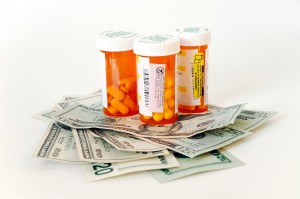 Bottom-Line: Clinical Trial’s Funded By Big Pharma Are More Likely To Provide Positive Results
Bottom-Line: Clinical Trial’s Funded By Big Pharma Are More Likely To Provide Positive Results
The primary role of the FDA in the drug approval process is to simply review the results of clinical trials. Since the FDA does not perform clinical trials, it must largely rely on data from clinical trials organized and paid for by pharmaceutical companies.
Big Pharma Influence On Study Results: Funder Bias
Researchers have studied the effect of pharmaceutical industry influence, either, monetary or other support, on the results of studies. Epidemiologists now recognize this influence as something called “funder” bias and it must be considered when performing a critical analysis of the data.
Proof Is In The Pudding: The Science
- The Annals of Pharmacotherapy published a study in which researchers analyzed the results of 500 clinical trials showing that there has been a 62% increase in industry-sponsored clinical trials from 1997 through 2000(1).
- In a study published in the Journal of the American Medical Association, researchers found that treatment with an experimental drug was recommended in only 16% of trials funded by nonprofit organizations as compared to a 51% recommendation in trials funded by for-profit organizations, i.e. pharmaceutical manufacturers(2).
- The Canadian Medical Association Journal published a study in which researchers analyzed the results of 332 studies showing that industry-funded trials are more likely to be associated with statistically significant pro-industry findings, both in medical trials and surgical interventions(3).
- In a study published by Family Practice, researchers analyzed the results of 314 trials showing that negative findings were found in 35% of non-industry supported studies and only 13% of industry-supported studies(4).
- Analysis of Avandia research showed that only 25% of researchers funded by industry held unfavorable views of the drug(5).
(1) Buchkowsky, SS, et al., Industry sponsorship and authorship of clinical trials over 20 years, Ann Pharmacother., 2004 Apr; 38(4):579-85.
(2) Als-Nielsen, B, et al., Association of funding and conclusions in randomized drug trials: a reflection of treatment effect or adverse events?, JAMA, 2003 Aug
20; 290(7): 921-8.
(3) Bhandari, M, et al., Association between industry funding and statistically significant pro-industry findings in medical and surgical randomized trials,
CMAJ, 2004 Feb. 17; 170(4):477-80.
(4) Yaphe, J., The association between funding by commercial interests and study outcome in randomized controlled drug trials, Fam Pract., 2001 Dec.; 18(6): 565-8.
(5) Preventive Medicine 2010: the Annual Meeting of the American College of Preventive Medicine (ACPM): Poster abstract 212694. Presented February 19, 2010.
